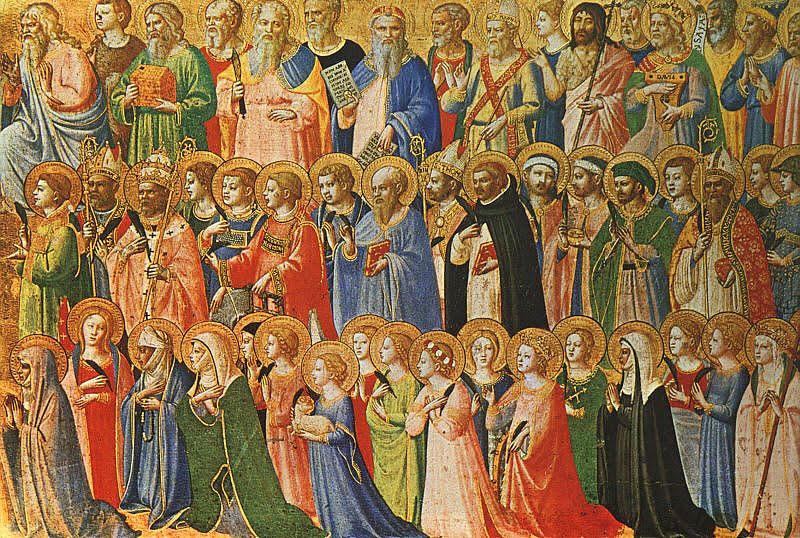I went to elementary school at St. Edmund’s Academy in Pittsburgh. It was a small place, at the time newly founded, with a nursery school, kindergarten, and grades one through eight. I spent eleven years there, longer and likely more formative than any other school I ever attended. Today, St. Edmund’s is coeducational, but back then, it was an all boys school with Episcopalian roots, complete with a weekly chapel service every Thursday led by a semi-retired parish priest, but undoubtedly presided over by the school’s Headmaster (whom everyone simply called “Sir”) who doubled as the organist and choir director. Singing was strongly encouraged and Glee Club was the summit of all school-related activities, more important even than sports, believe it or not.
Our school’s patron saint, Edmund, or more properly, Edmund the Martyr, was King of East Anglia on the English coast from 855 until his death on November 20, 869. I have no idea how or why he came to be so revered in Pittsburgh that a school was named in his honor, but we all knew Edmund’s story. As a young boy, he was befriended by a pack of wolves, raised by them to be a goodly king which, apparently, he was until he met his end either in battle against the Great Heathen Army or for refusing to renounce God when the battle was lost. In either account, he was felled by Viking arrows which we all assumed was the only proper way for a saint to die, better even than crucifixion.
I’m thinking about all this because today, Tuesday, is All Saints Day in the Christian tradition, and while we may not all be Christian, we all can honor good deeds by good people, the known and unknown. Moreover, the fact that All Saints Day, also known as All Hallows Day, follows on the heels of All Hallows Eve—the costumed candy fest we all know as Halloween—says something profoundly important about our contemporary culture: maybe that these days, Reese’s Peanut Butter Cups are the new saints of the chocolate aisle and that martyrdom has finally fallen out of fashion. About time!
All Saints Day is a solemn day in the Christian Church, a time for remembering all the souls who have gone before us, the famous and the obscure. It underscores the Christian belief that there remains a spiritual bond between those of us who now reside in heaven and those of us still here on earth. I realize that’s a matter of personal predilection, but I like to think that there is still a vibrant connection between the living and the dead, that the past can still inform the future, and that hope abides.
The Episcopal hymnal is full of good songs for lusty singing, but none, I think, more so than “I Sing A Song of the Saints of God.” It was a young choirboy’s dream, full of references to saints who met their ends in various gruesome ways—one was even “slain by a fierce wild beast.” That the subtext of the hymn—that we can all be saints by performing small acts of kindness every day—was likely lost on us; it was much more impressive to be martyred by marauding Vikings than to encounter someone in a tea shop, which, according to the hymn, was another possible path to sainthood. Tea shops fail to impress young boys.
But that was then; I’m not a young boy anymore. Now, I hear that hymn differently because it ends with this refrain: “For the saints of God are just folk like me/And I mean to be one, too.” I like that. Maybe I don’t need to be a martyr after all.
I’ll be right back.
Jamie Kirkpatrick is a writer and photographer who lives in Chestertown. His work has appeared in the Washington Post, the Baltimore Sun, the Philadelphia Inquirer, the Pittsburgh Post-Gazette, the Washington College Alumni Magazine, and American Cowboy Magazine. Two collections of his essays (“Musing Right Along” and “I’ll Be Right Back”) are available on Amazon. Jamie’s website is www.musingjamie.net.




Write a Letter to the Editor on this Article
We encourage readers to offer their point of view on this article by submitting the following form. Editing is sometimes necessary and is done at the discretion of the editorial staff.